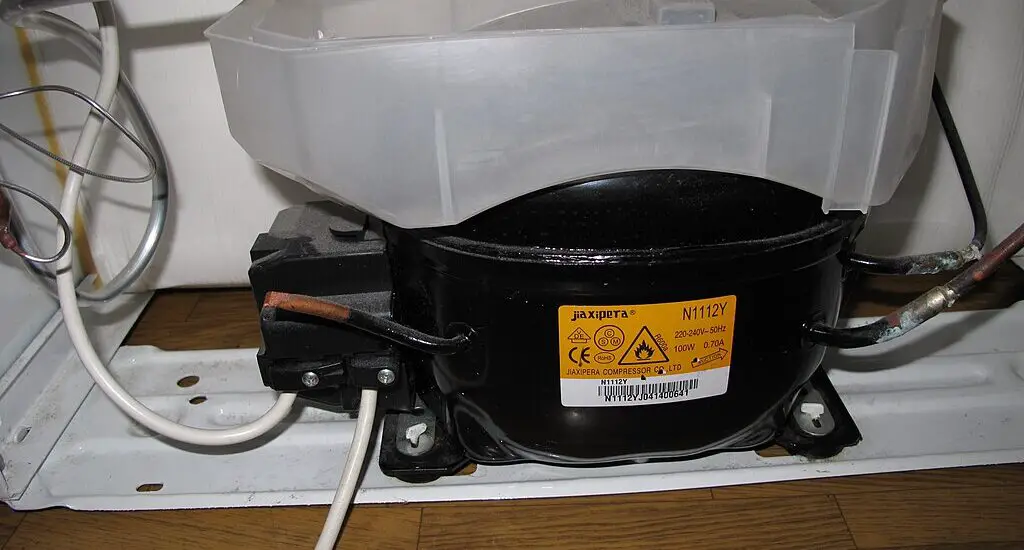Are fridge compressors dangerous? This complete guide will explain the hazards associated with fridge compressors and guide you through the safest ways to interact with them.

Table of Contents
Are Fridge Compressors Dangerous?
The notion that a fridge compressor could be dangerous may not be immediately obvious. However, several factors make it crucial to approach them with caution.
Chemical Hazards
Fridge compressors contain refrigerant gases, such as Freon or R-134a, which are harmful if inhaled or come into contact with the skin. Exposure can lead to respiratory difficulties, skin irritation, and in extreme cases, poisoning.
Electrical Hazards
The compressor is an electrical component with circuits, wires, and capacitors. If these electrical elements are exposed due to wear, tear, or damage, there’s a risk of electrical shock upon touching them. Handling a powered compressor without isolating it from the electrical source can lead to serious injury.
Fire Risks
An improperly functioning or damaged compressor can become a fire hazard. Overheating, faulty wiring, or electrical malfunctions can potentially ignite the compressor or surrounding materials, causing a fire that could spread quickly.
Safety Concerns
Knowing what safety concerns to be aware of can help you take the appropriate precautions. Here’s what you need to know:
Chemical Exposure
Refrigerants are hazardous chemicals. Always make sure the compressor is intact before handling it to reduce the risk of exposure. Check for signs of leakage or damage as these could indicate that the refrigerants are escaping.
Electrical Safety
Always unplug the fridge before attempting any repair or removal of the compressor. Check for frayed wires, broken insulating material, or exposed circuits. Each of these represents an electrical shock hazard.
Fire Risks
Examine the compressor and its surroundings for signs of charring, melting, or burns. Smell for any odors that could indicate electrical burning. These are clear indicators of a fire risk.
Check out these other articles…
What Happens When a Fridge Compressor Fails? 4 Signs & Fixes
What Does a Compressor Do in a Fridge? An Essential Guide
Can You Fix a Compressor on a Refrigerator? Answer & Guide
What Can Damage a Refrigerator Compressor? 5 Key Threats
Are Refrigerator Compressors Expensive? Comprehensive Answer
How to Handle a Fridge Compressor Safely
Safety is paramount when handling a fridge compressor. Here’s a detailed guide on how to proceed safely:
Wear Appropriate Safety Gear
Before engaging with the compressor, make sure to put on protective gloves and safety goggles. The gloves protect your hands from chemical exposure and electrical shocks, while the goggles shield your eyes from any possible splashes of refrigerants or sparks.
Check out this NoCry Professional Safety Work Gloves with Grip on Amazon.
Electrical Disconnection
The first step in safely dealing with a fridge compressor is to disconnect the power source. Locate the electrical cord and unplug it from the outlet. This action nullifies the risk of electrical shocks during the handling process.
Compressor Identification and Disconnection
Locate the compressor at the back or bottom of the fridge. Identify all the wires and hoses connected to it. Carefully unplug or unscrew these, marking them for future reference. The disconnection process should be done cautiously to prevent any sudden releases of refrigerants.
Safe Removal and Disposal
Once disconnected, gently lift the compressor out of its housing. If you intend to dispose of it, contact your local waste management service for proper procedures as it contains hazardous materials. It’s important not to simply throw it in with regular trash.